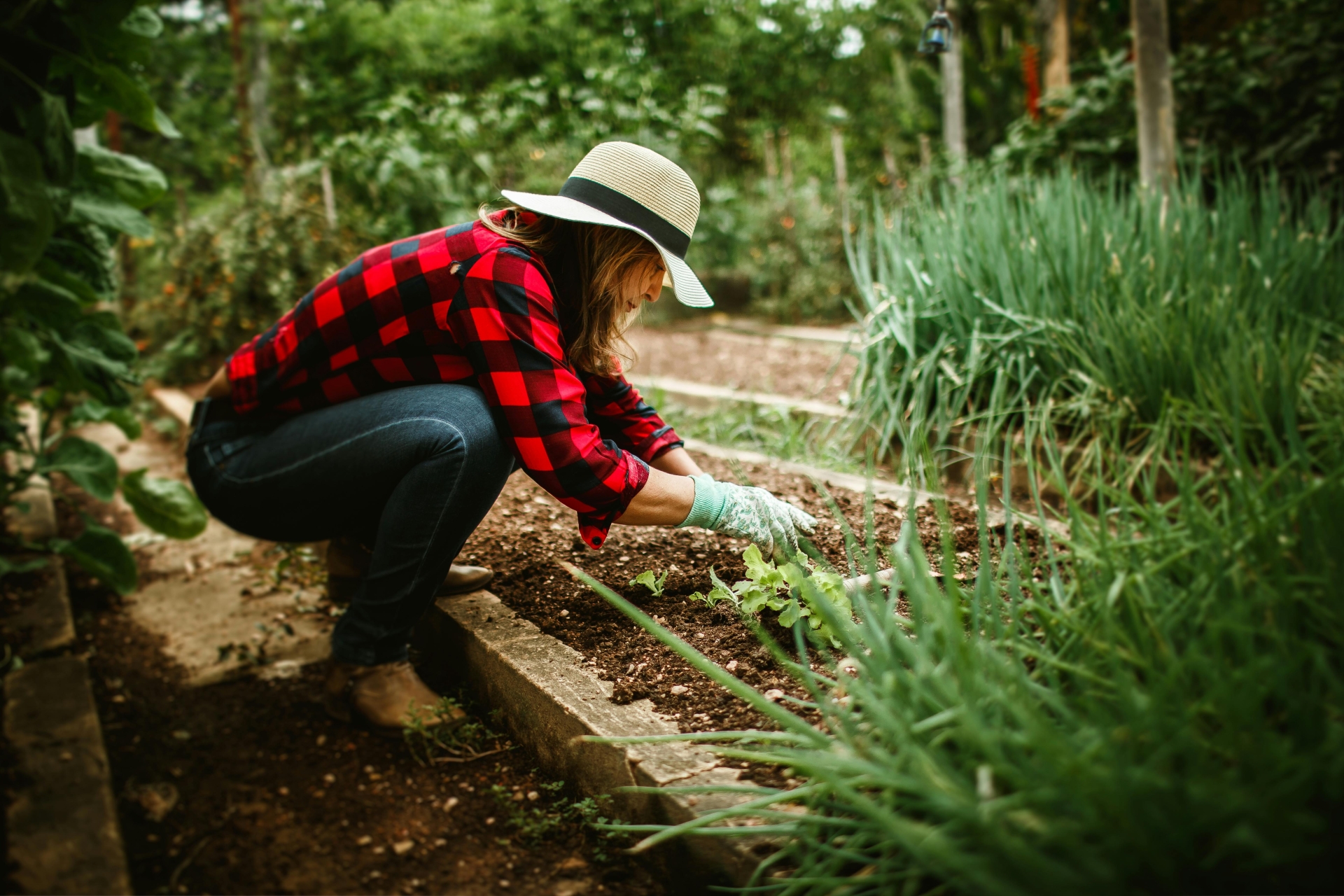
Gardening: good for the body, good for the mind
JON Kabat Zinn defines mindfulness as “the awareness that arises from paying attention, on purpose, in the present moment, and nonjudgmentally”.
In clinical practice, we encourage clients to become more mindful. We teach them that there are many simple ways of doing this in their everyday lives; they do not have to set aside time to formally meditate (unless they want to!) We highlight all the routine tasks and chores and even hobbies and activities that they could perform in a more mindful way in everyday life.
Gardening as a mindful practice
Gardening is a really good example of a common, accessible hobby or activity that can be a mindful practice.
Any gardeners among our readers will know that they often lose track of time when they are in the garden.
Most people will be familiar with the sense of peace and calm that gardening can give them. Routine tasks like planting and weeding, even cutting the grass, require focus and concentration.
When we focus on one thing at a time, our minds quieten, our thoughts slow and our attention gets anchored in one spot.
Ordinarily our minds are busy and it is usual for our thoughts to dart from one thing to another; this is the default.
If we want to quieten the mind, we need to hook it on to something; gardening is a perfect opportunity to do this. It also engages the senses, smell and touch and hearing as well as seeing, so it can be very grounding and calming.
The garden can be a protected place where we practise being where we are and actually doing what we're doing.
Gardening activities can include a range of activities from growing seeds in pots on your windowsill, on your balcony if you live in an apartment or on your patio in tubs. You do not need to have your own garden to garden!
Gardening is a good way to practise the mindful attitude of acceptance; we can only control so much, but ultimately, nature is in charge. We also have to accept imperfection, again, because it is nature that is in charge, not us.
Outside in nature
We know intuitively that being outside and connecting with nature is good for us. Scientists attribute this partly to the fact that humankind has evolved and lived outdoors in wild landscapes over many, many years.
Gardening puts us in touch with nature and the outdoors. And we know from the literature that spending time in nature can contribute to good mental health functioning both in prevention and treatment.
Recent studies have yielded results that suggest that connecting with nature helps with emotional regulation and cognitive functions such as memory, attention, ability to focus and concentrate, problem-solving and creativity.
In addition, when we are outdoors, during daylight we reap the benefit of vitamin D, something that many of us are low in. Vitamin D is involved in the conversion process of tryptophan to serotonin. Serotonin is known as the happy chemical and may help alleviate depression.
Seasonal affective disorder, a type of mood disorder which most commonly affects people in the winter months is thought to be connected with the deficit in natural light.
Being outdoors in nature is associated with alleviation of low mood and anxiety.
The theory of earthing proposes that direct foot to soil connection is linked to better sleep and wellbeing and reduced stress and pain. More studies are needed to fully understand the potential effects of earthing.

Scientists also suggest that we take in beneficial substances when we are breathing in nature’s fresh air – beneficial bacteria, plant-derived essential oils and negatively-charged ions.
Apparently, there are relatively high levels of negative ions in forests and close to bodies of water. These ions are involved in biochemical reactions that also increase levels of serotonin in our bodies.
Horticultural therapy utilises plants and gardening activities to improve physical, emotional and mental health.
Organisations such as Horticultural Therapy Ireland offer services and training in this area to a variety of populations, for example, people with disabilities, older adults, individuals recovering from addiction and mental illness.
Physical exercise
Gardening provides us with the opportunity for physical movement, for exercise in the outdoors. Pulling, pushing, planting, raking, sweeping - these are all forms of movement that keep our muscles working.
From a physical point of view, there is evidence from the scientific literature that being in nature as well as being more active outdoors is good for our cardiovascular health, blood pressure, bowel health, eyesight, bone health and for nervous system and immune system functioning.
READ NEXT: POSITIVE PSYCHOLOGY: Fears, phobias and finding a way through them
In some countries, medical doctors prescribe 'green exercise' as a means of improving mental health and physical well-being.
In one area in Canada the standard nature prescription given by GPs is two hours per week, outdoors in nature, with a minimum of 20 minutes per session.
This exposure to outdoors activity can range from just being in your back garden to hiking along mountain trails. This prescribing of nature has a name – ecotherapy.
Gardening has benefits at every age
An article published by the British Psychological Society (BPS) at the outset of the global pandemic, Covid-19, examined the research on the positive mental health and well-being benefits of gardening.
The analysis has shown that gardening activities have potential benefits across the life span.
In children and adolescents, this activity has been shown to promote social relationships, family connection, emotional and mental well-being. It can help with stress management, reduce anxiety and depression and can enhance cognitive and educational outcomes.
Other benefits include increased enjoyment, a sense of satisfaction and mastery and pride in seeing things grow and bloom.
The article cites similar benefits for adults - for example, reduction in stress, anxiety, depression, anger and fatigue and increase in well-being indicators such as life satisfaction and vigour.
The BPS article cites an Australian study carried out in 2006 that suggests that gardening can delay dementia symptoms.
So, with the warm weather continuing we have no excuse not to avail of an evidence based activity that will support good mental and physical health. It’s cost-effective and accessible and is literally at our fingertips.

Julie O'Flaherty and Imelda Ferguson (pictured above) are chartered clinical psychologists with over 20 years of experience each. They are both working in private practice in Tullamore, Co Offaly. Through Mind Your Self Midlands, they run a range of positive psychology and mindfulness courses, with the focus on practical application to everyday struggles. They can be contacted through the Psychological Society of Ireland website (in the Find A Psychologist section), and also on their Facebook page, Mind Your Self Midlands.
Subscribe or register today to discover more from DonegalLive.ie
Buy the e-paper of the Donegal Democrat, Donegal People's Press, Donegal Post and Inish Times here for instant access to Donegal's premier news titles.
Keep up with the latest news from Donegal with our daily newsletter featuring the most important stories of the day delivered to your inbox every evening at 5pm.